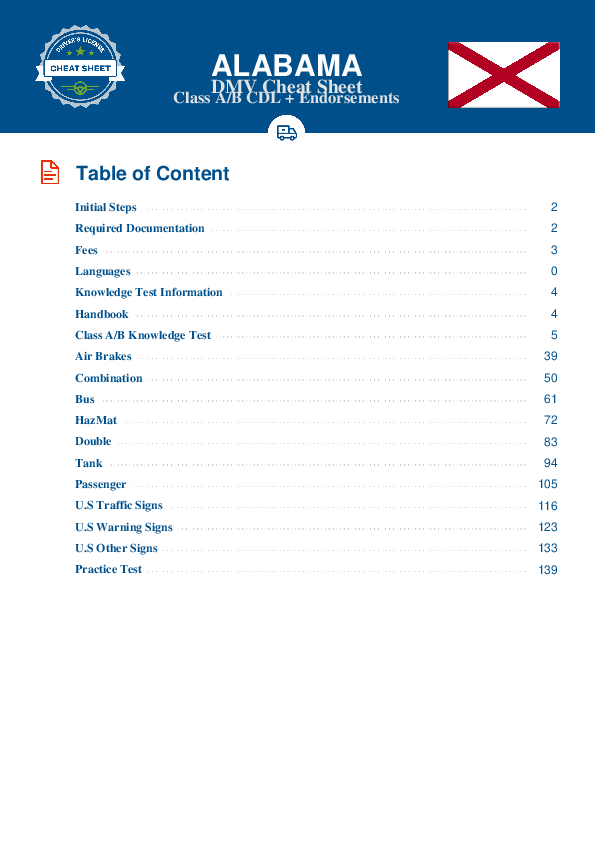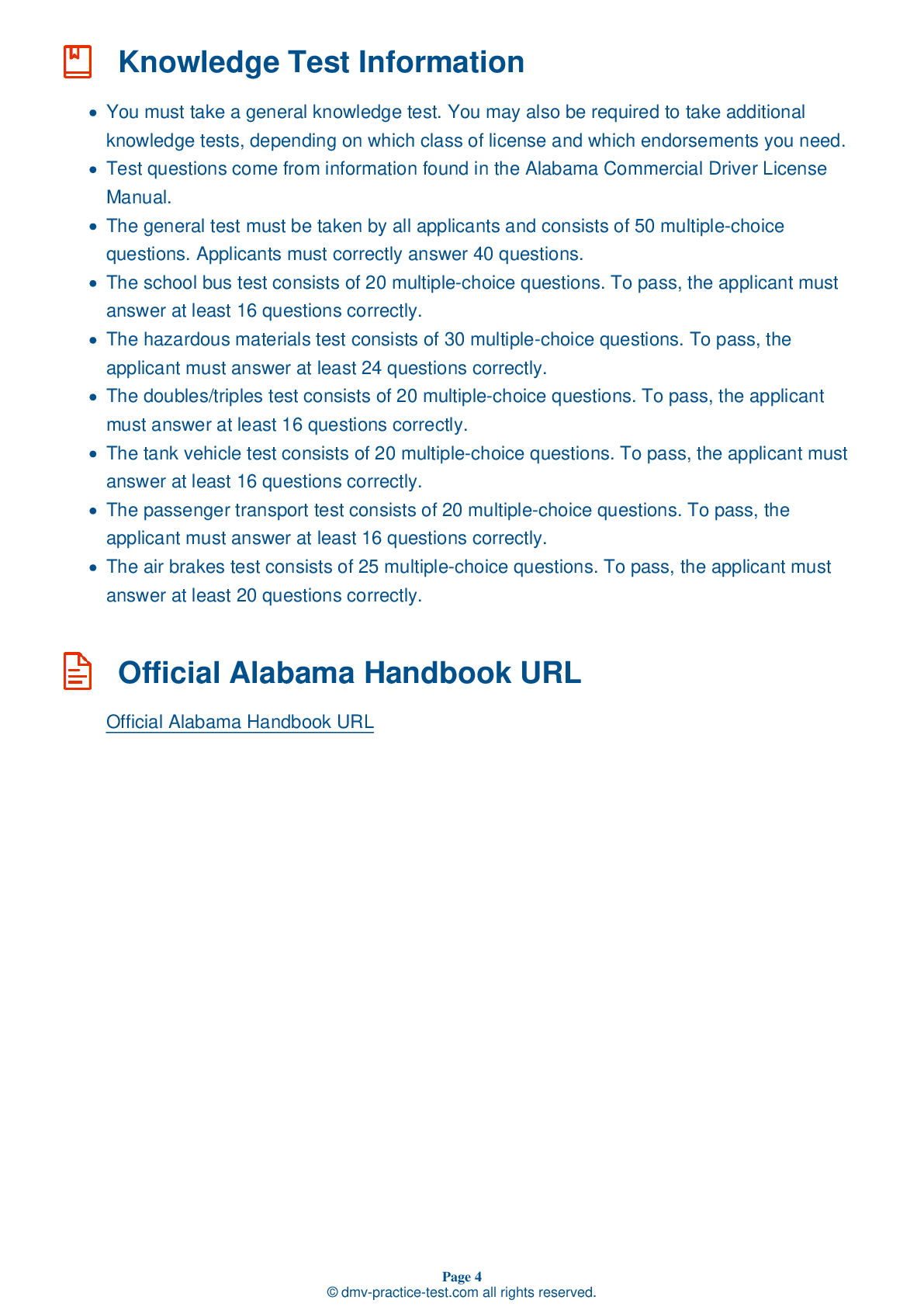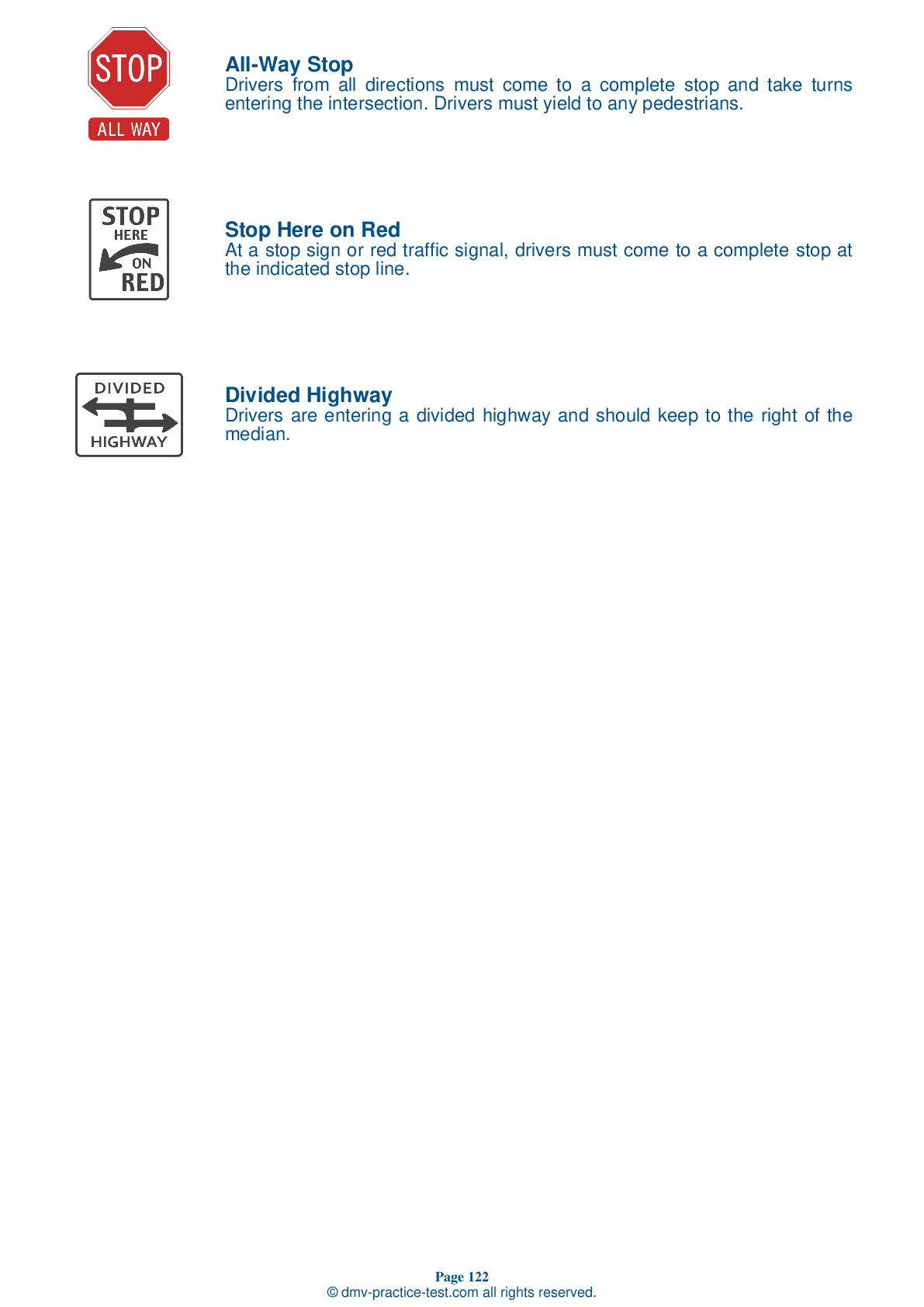Passenger Endorsement | Alabama 2025 #2
Train for FREE with our Alabama CDL passenger endorsement practice test online. The official exam test consists of several obligatory parts, with all of them checking your knowledge of different blocks of road rules. If you need to obtain a AL DMV passenger endorsement in 2025, practice as much as possible. Free sample tests published on our website will help you check and improve your knowledge and boost your grades. Please bear in mind that DMV requirements for issuing a CDL permit with passenger endorsement may vary from state to state.
1 . Hydroplaning:
If there is enough water on the road, hydroplaning can occur at speeds as low as 30 mph. It is most likely if the tires' air pressure is too low or if tires' tread is worn.
2 . How can a driver maintain alertness while driving?
Eating heavy foods before driving or keeping the temperature in a cab too high can cause a driver to become drowsy while behind the wheel. Exercising and maintaining a healthy diet will help a driver to stay alert while driving.
3 . A cargo van is:
The added weight of a heavy load will make a vehicle sit lower than usual. A vehicle will often be taller when carrying a light load than when carrying a heavy load. If your vehicle fits under an overpass while carrying a full load, it is not guaranteed that it will fit under the same overpass if it is empty.
4 . When taking the on-road driving skills test, you will be evaluated on your gear usage. You should not:
During the on-road driving skills test, you will be evaluated on your gear usage. Select a gear that does not rev or lug the engine; avoid grinding and clashing gears; and avoid shifting through turns or intersections.
5 . Hydroplaning usually occurs:
In places where water collects on the road, it is possible for a vehicle to hydroplane. Low tire pressure or worn tire tread makes this more likely to happen. If there is enough water on a road surface, hydroplaning can occur at speeds as low as 30 mph.
6 . While driving, a driver should:
It is essential that you are aware of what is happening on all sides of your vehicle at all times. Scan the road ahead and make regular checks of the mirrors on both sides of your vehicle while you are driving.
7 . When changing lanes, you should not:
Always signal and check your mirrors when turning and changing lanes.
See the exact questions that will be on the 2025 Alabama DMV exam.
99.2% of people who use the cheat sheet pass the FIRST TIME
Lillian MCcranie explains how our CDL study guide was helpful in passing the exam and recommends it to everyone.
Cameron tells us how he purchased the CDL exam, and found it to be a useful tool which helped him pass the exam and find a job.



